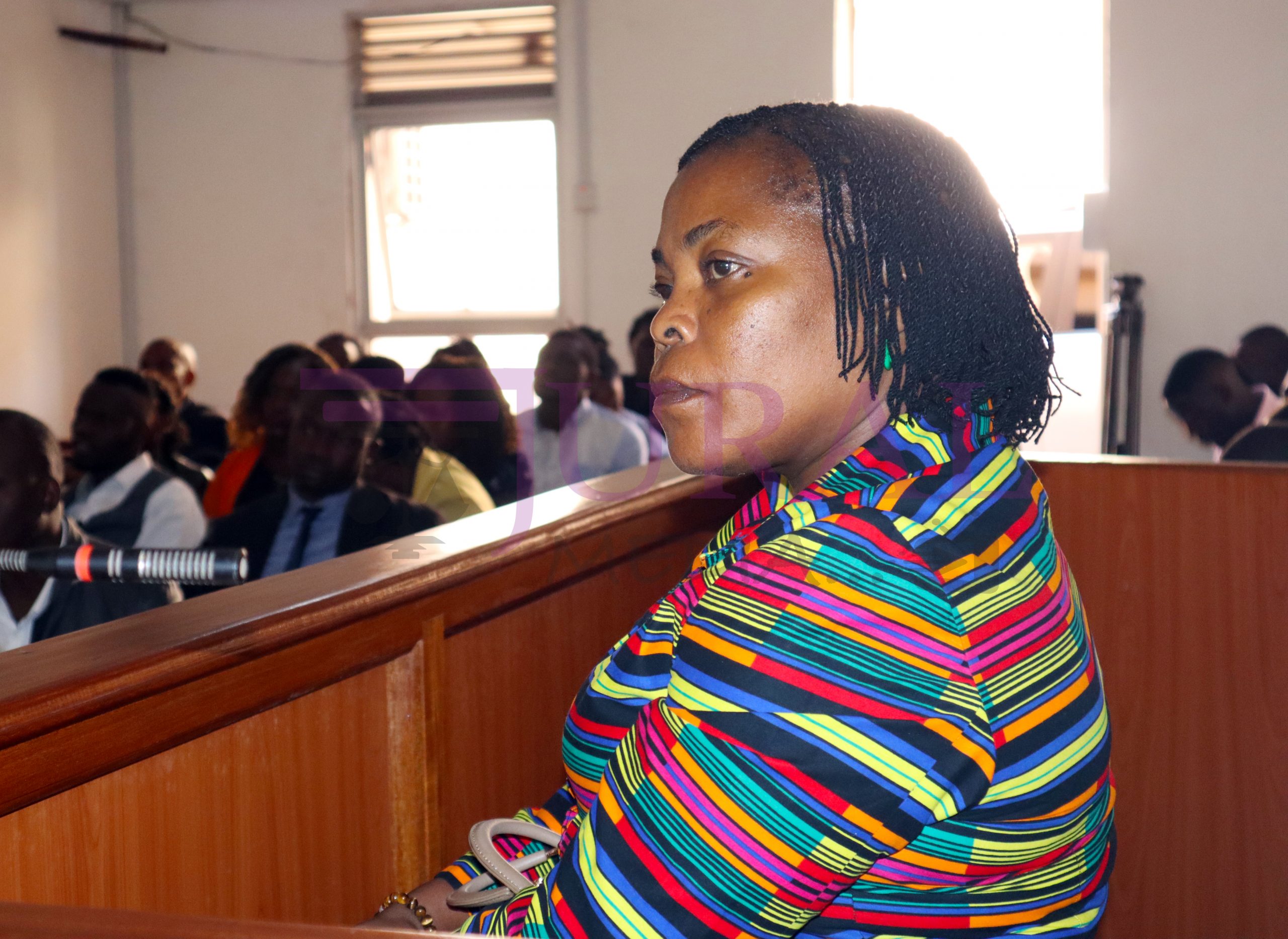By Kerry Howard Mwesigwa
State Minister for Karamoja Affairs, Hon. Agnes Nandutu appeared before the Anti-Corruption Court on 25th May 2023 where she is facing charges of dealing with suspect property. Defence Counsel Caleb Alaka representing Agnes Nandutu put forth a compelling argument asserting the need for a constitutional interpretation in the ongoing trial. The defence claims that a question of constitutional importance has emerged, requiring the involvement of the Constitutional Court to address the fairness and legality of the charges under Section 21 (a) of the Anti-Corruption Act 2009, as amended by Act 12 of 2015.
During the proceedings before Judge Jane Okuo Kajuga, Counsel Alaka challenged the validity of charging an individual under Section 21 (a) of the Act, which pertains to dealing with suspect property. He contended that the accused can only be charged under this provision if someone else has been convicted of stealing the property in the first place. The defence further argued that Nandutu was not accused under Sections 21 (b) and (c) of the Act, which specifically address the circumstances of a person dealing with suspect property.
Counsel Alaka pointed out that the broad and vague nature of Section 21 (a) 1 and 2 of the Anti-Corruption Act raised concerns about its compatibility with the constitutional guarantees of a fair trial. The defence argued that under Article 28 (1 & 12) of the Ugandan Constitution, the accused should not be subjected to a trial under a provision that is ambiguous, imprecise, and fails to meet the standards of a fair trial.
To seek clarity on this constitutional matter, the defence requested that the court refer the question regarding the constitutionality of Section 21 (a) to the Constitutional Court, in accordance with Article 137 (5) and 6 of the Constitution. The defence cited previous cases, including Andrew Kibaya v Uganda and Nkalubo Patrick vs EC & Others, to support the proposition that a reference must arise directly or by necessary implication from the proceedings and that the question should hinder the continuation of the case until answered.
In response, State Counsel Bisamunyu David refuted the defence’s assertions, stating that Section 21 (a) of the Anti-Corruption Act, as amended, is clear and not ambiguous. He emphasized that the indictment clearly outlined the state’s argument based on Section 10 (1) of the Act and that the property in question, 2000 iron sheets marked with an OPM stamp, was adequately defined.
State Counsel Bisamunyu, also contended that the defence’s invocation of previous cases, such as Andrew Kibaya v Uganda and Ug v Atugonza Francis, was misplaced and did not apply to the present situation. He argued that the defence failed to demonstrate any violation of constitutional rights and that the questions raised did not require constitutional interpretation.
The presiding Judge Hon. Justice Jane Kajuga adjourned the case to May 29th at 9 am when she will deliver a ruling on whether to refer the constitutional question raised by the defence to the Constitutional Court. The decision is eagerly anticipated by both the defence and the prosecution, as it has the potential of setting a tone for how the prosecution of high-profile individuals implicated in the iron sheet saga will be handled.















